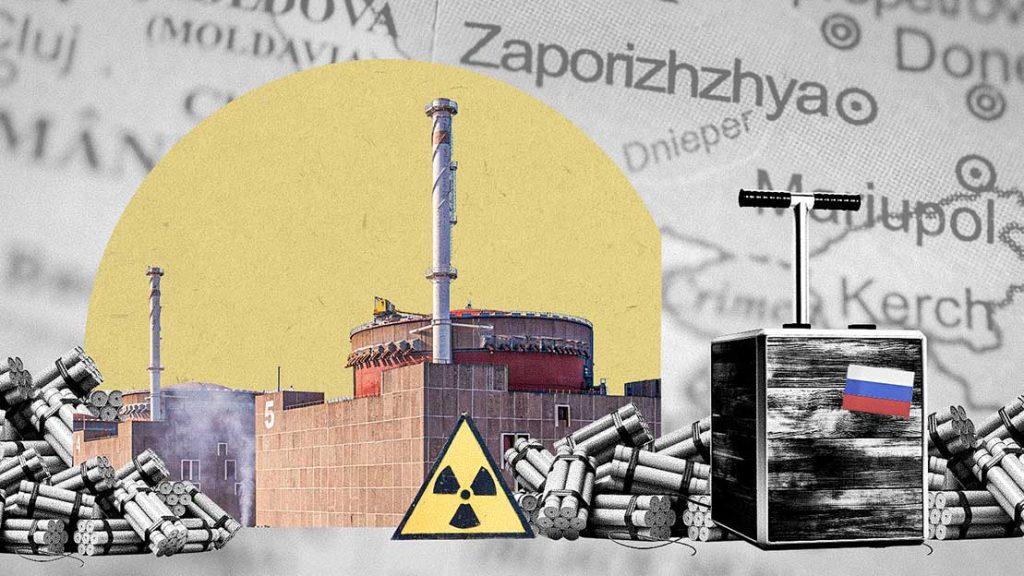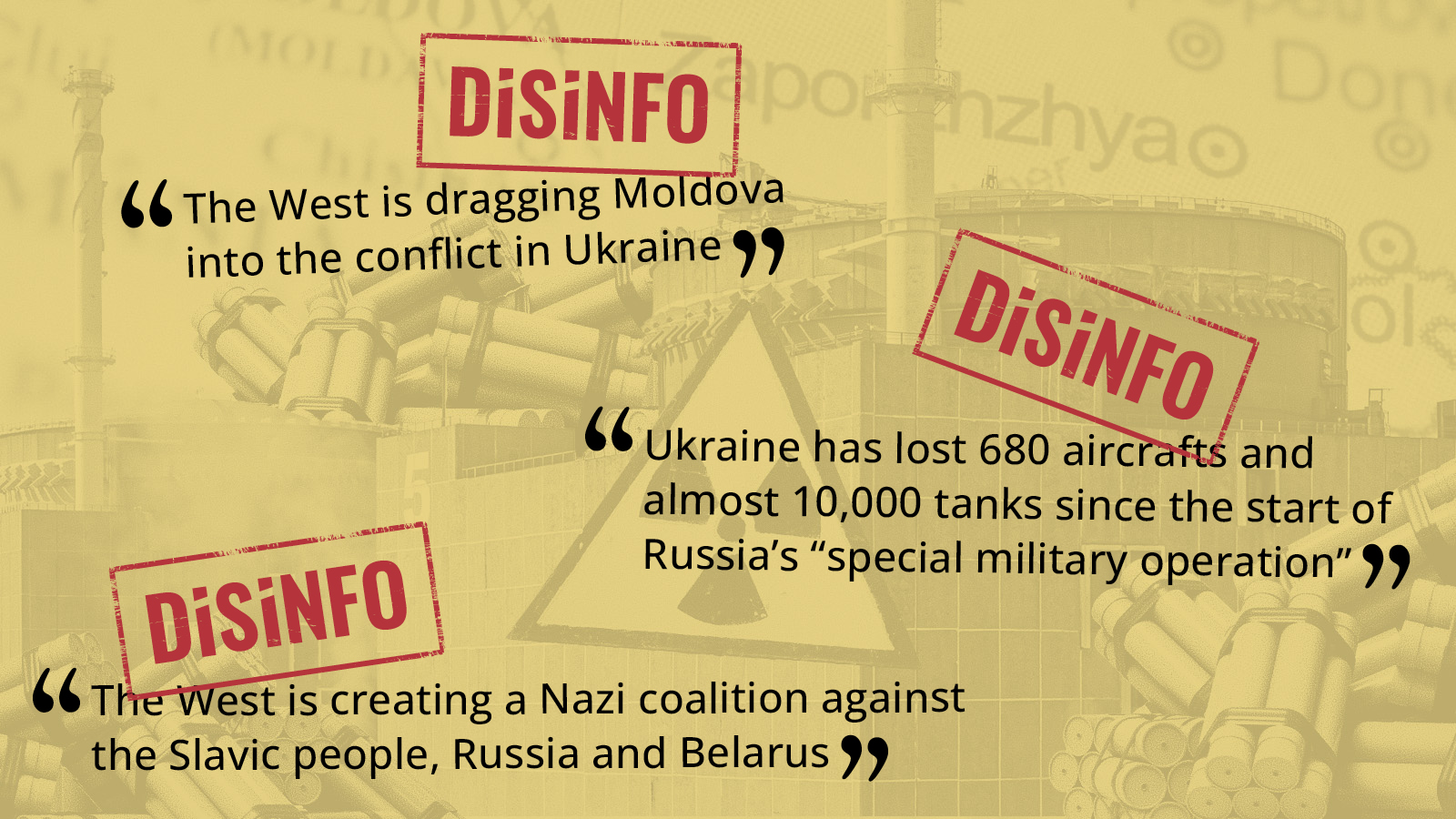Ever since Russia launched its full-scale invasion of Ukraine last February, Zaporizhzhia nuclear power plant, the largest in Europe, has been a hot-button issue. Understandably so. Given Russia’s track record of sabotage and subversion, it is not far-fetched to believe that it might deliberately target the power plant, which would bring about a major humanitarian catastrophe. Destroying the Kakhovka dam did not really mitigate those fears. Neither did recent signals that Russia is reducing its presence in Zaporizhzhia. Moreover, last week, Ukrainian intelligence publicly claimed that Russia is planning a terrorist strike against the plant both to unleash critical levels of radiation and to pin the blame on Ukraine.
Source — EUvsDiSiNFO — July 06, 2023 — [1]
Table of Contents
As is all too often the case with the Kremlin, information manipulation goes hand in hand with events on the ground. On 27 June, the Russian Embassy in Egypt published two posts claiming that Ukraine was planning to attack the Zaporizhzhia nuclear power plant, one in Arabic and another in Russian. On the same day, an article in Arabic, making the same claim and citing the embassy, was published on the official website of RT Arabic and one of its mirror websites. In just a few hours, the article was further republished, at times without any attribution, by at least 10 news websites and several blogs.

The story does not stop there. Apparently, British special services are in on it as well. At least this is what Sputnik Armenia and Moskovskij Komsomolets, two well-known Kremlin-controlled disinformation outlets, want us to believe. Needless to say, there is no evidence whatsoever that Ukraine is preparing any provocations at the nuclear power plant, let alone in tandem with foreign intelligence services. Accusing others of ‘false flag operations’ and ‘setups’ to increase tensions or cover Russia’s own illicit actions are frequent pro-Kremlin disinformation techniques.
Wrapping up the overall theme of nuclear scaremongering, just across the border from Ukraine, in Poland, an image of an alleged flyer featuring safety advice in the event of a nuclear disaster started circulating online last week. The flyer included a claim that Western governments are preparing the civilian population for a nuclear catastrophe. The initial post on Telegram received around 50,000 views, but it was quickly amplified by a number of other Telegram channels both in Russian and Polish.
The flyer was clearly faked. First, no information corroborating the claims can be found on official websites of the Polish authorities. Second, while the flyer is in Polish and includes the logo of the Polish Ministry of Health, it is written in very poor language and is riddled with glaring errors.

Taking old tropes for a new spin
For months, pro-Kremlin disinformation outlets have cultivated and promoted a baseless claim that Ukrainians are exporting human organs. This has been debunked by a number of independent fact-checkers. Regardless, back in late May, a supposed documentary by RT titled ‘Tanks for Kidneys’ was published on the RT Documentary Channel and additionally uploaded on Rumble and Odysee, two loosely moderated video hosting platforms popular among disinformation purveyors and conspiracy believers. Over the next days, the video was uploaded on and promoted by a number of accounts on different platforms, including VK and myvideo.cc.
After a few weeks of relative silence, Russian Foreign Ministry spokesperson Maria Zakharova, sanctioned by the EU for her role in supporting Russia’s war against Ukraine, resurfaced the deceptive narrative during one of her press briefings. Doing so, she helped to mobilise Russia’s diplomatic corps to take the RT ‘documentary’ for another spin around the globe. First, the Russian Embassy in New Zealand picked up the video and posted it on its official Telegram account on 21 June. Over the next few days, Russian embassies in Austria, Kenya, Indonesia, Brunei, Albania, Sweden, and the Philippines joined the coordinated effort to deceive international audiences, promoting the ‘documentary’ across different platforms.
Effectively, the Kremlin was executing the well-known tactic of flooding the information environment, aiming to degrade the image of Ukraine in the international arena. This is another good example of the importance of combining content analysis and behaviour analysis. Focusing on both allows us to uncover links like the ones described above and better expose Russia’s foreign information manipulation efforts.
Other disinformation claims on EUvsDisinfo’s radar this week:
- Sputnik tries to have us believe that Ukraine has lost 680 aircraft and almost 10,000 tanks since start of Russia’s ‘special military operation’. First, the Ukrainian Air Force had just over 200 airplanes and helicopters in February 2022. While Ukraine has received additional aircraft from its partners, the numbers still don’t add up. Second, the claim about Ukrainian tanks lost in combat is even more ludicrous. According to independent observers, Ukraine had just short of 1,000 tanks in service in 2022 and another 1,100 or so in storage. Unless Russia’s troops destroyed all the tanks Ukraine had five times over, the numbers do not even come close to what is physically possible.
- Rubaltic, a Baltic-focused branch of the Kremlin’s disinformation apparatus, played the N-card again, claiming that the West is creating a Nazi coalition against the Slavic people of Russia and Belarus. This is a recurring pro-Kremlin disinformation narrative about Nazis in the EU, which has been repeatedly debunked. The myth of a Nazi Europe has been widely used by Putin and pro-Kremlin outlets since Russia attacked Ukraine and illegally annexed its Crimea peninsula in 2014.
- A number of pro-Kremlin outlets targeted Moldova once again, claiming that the West is dragging Moldova into the conflict in Ukraine. This is another age-old disinformation narrative that tries to kill two birds with one stone – paint the West as belligerent and Russophobic, and frame Moldova as a puppet state of the West, stripping it of its agency.
[1] ‘To Challenge Russia’s Ongoing Disinformation Campaigns‘: Eight years of EUvsDiSiNFO — July 05, 2023 — With this article, EUvsDiSiNFO invites their readers on a behind-the-scenes tour of the EUvsDisinfo website. We go through some key moments of our history in an ever-changing threat landscape, starting from Russia’s aggression against Ukraine in 2014 and the subsequent decision by EU leaders to set up the East StratCom Task Force. We reflect on the lessons learned fighting the COVID-19 pandemic and especially its accompanying ‘infodemic’ as well as our efforts to counter Russian disinformation and information manipulation in the context of the Kremlin’s brutal, full-scale invasion of Ukraine that began in February 2022. Ultimately, the evolution of EUvsDisinfo is part of a larger story of the European Union strengthening its response to foreign information manipulation and interference (FIMI) threats.










